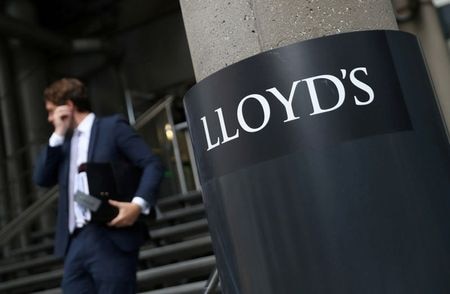Lloyd’s of London reports £1.4bn profit in first half of 2021

Lloyd’s of London returned to profit in the first half of 2021, with the help of a stronger underwriting performance, the insurer announced this morning.
The commercial insurance market’s results indicate its recovery after it incurred significant losses during the pandemic last year. In the same period a year ago Lloyd’s suffered a total loss of £400m across its syndicate members.
In the first half of 2021 though premium rates rose 9.9 per cent, Lloyd’s said in the announcement today.
CEO John Neal, who joined Lloyd’s in 2018, told City A.M. the results were the culmination of a three-year strategy.
The market’s combined ratio, which is a measure of underwriting profitability where 100 per cent marks breaking even, fell from a loss-making 110.4 per cent in the last period to an underwriting profit of 92.2 per cent.
Even after excluding the sizeable number of covid-related claims booked last year, the measure showed improvement by almost five percentage points.
The city insurance market said it was paying £9.4bn worth of claims, including those of customers affected by the pandemic, and that 80 per cent of covid-related claims notified to date have been paid.
“Lloyd’s has successfully repositioned the market for sustainable, profitable growth,” Neal said in a statement.
“We are making great strides on all our strategic priorities which focus on improving the culture in the market, the Future at Lloyd’s digital transformation, and sustainability, climate and inclusion,” he added.
The insurance market is in the process of revamping its iconic building spaces including its historic underwriting room partly in response to acknowledging new ways of working.
The proposed plans to its indoor spaces, for example, include reducing the size of its grand underwriting room, where thousands of people normally meet face-to-face to draw up insurance contracts, to fit in more screens to allow more people to attend digitally.
Other additions to the famous headquarters include wellbeing facilities, a food market and even a fine dining restaurant.
Neal, who expects to be in the office around four days a week, told City A.M. that Lloyd’s encourages flexible working for its staff but added that “there is a value to your personal well-being and also to business if you are there on one, two or three days a week.”